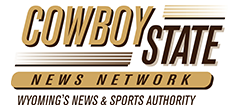In a presentation to the Wyoming Legislature’s Joint Appropriations Committee, Governor Mark Gordon emphasized the importance of responding to an historically devastating wildfire season. The Governor told the committee his supplemental budget recommendations are in response to emergencies and the impacts of inflation. Governor Gordon pointed out his request is truly a supplemental budget, addressing issues unknown a year ago, those requiring immediate attention, or those requested by the legislature.
The Governor noted in 2024 more than 2,000 wildfires burned in excess of 850,000 acres. About 70% of that acreage was on private and state lands, and the financial toll of fire suppression costs in 2024 exceeded $55 million.
“It is our responsibility to our citizens and our communities, to be prepared to respond should emergencies arise,” Governor Gordon said in his recommendation for $50 million to dedicate to firefighting and $130 million to restoration efforts. “Putting out the flames was long, hot, hard work. The harder work begins once the fires are out. Appropriate and adequate restoration needs to start right away, and in some areas will take years. The unusually high amount of burned private acres means a high degree of direct injury to our families and communities.”
After signing an expanded property tax refund program earlier this year, the Governor recommended an additional $10.5 million be allocated to the Department of Revenue, noting that the program is currency underfunded.
The Governor’s supplemental budget included an increase of $20.17 million to the Mineral Royalty Grant Program (MRG) to help the State Loan and Investment Board address emergency situations that pose a direct threat to health, safety, or welfare, as well as support essential public services.
Other funding recommendations presented by the Governor meant to help Wyoming continue to thrive included:
- Support the ongoing work of the Attorney General’s office to fight illegal regulatory efforts and groups opposed to multiple-use of Wyoming federal lands that restrict Wyoming’s ability to access and manage its natural resources.
- Support for access to obstetrics and mental health care providers through an increase in the Medicaid rates paid to those providers.
- A request for the Wyoming Innovation Partnership (WIP) to ensure the initiative transitions to the self-sustaining model originally proposed.

Be the first to comment